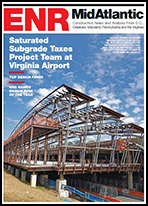More States Are Ruling That Construction Defects Are Accidents

For years, some state courts and insurance companies have been telling contractors that the construction defect claims they face aren't covered by their insurance because faulty work is not an "accident" that insurance is intended to guard against. This situation is rapidly changing, however, as more and more courts are concluding that defective construction is an "accident." This has opened the way for these claims to be covered by insurance.
There are four questions that must be answered to determine if a construction defect claim is covered by a contractor's standard commercial general liability insurance policy:
• Was the faulty work an accident?
• Did the faulty work result in property damage?
• Is the construction defect expressly excluded from the policy's coverage?
• If there is an exclusion that applies, is there an exception that restores coverage?
If the answer to the first question is no, then there is no further inquiry and no insurance coverage for the construction-defect lawsuit. Surprisingly, the answer often has more to do with state laws that apply to the insurance policy than the particulars of the defect itself.
For example, in the recent case of Dusty McBride v. Acuity, the 6th Circuit Court of Appeals denied insurance coverage for claims against a contractor based on structural construction defects because under Kentucky law, construction defects are caused by the builder, or the subcontractors chosen by the builder, and not by a fortuitous or truly accidental event.
However, if this case had been brought in a neighboring state, the court would have found that the defective construction was an accident because negligent or defective work is unintentional from the point of view of the insured. In this state, the contractor would have been one step closer to having insurance coverage for this claim.
This year, a number of state supreme courts have weighed this question, and all of them concluded that construction defects are accidents.
The West Virginia Supreme Court, in the case of Cherrington v. Pinnacle Group Inc., even went so far as to reverse its previous decisions that construction defects were not covered by insurance because they were not accidents.
Additionally, the Connecticut Supreme Court, in Capstone Building Corp. v. American Motorist Ins. Co.; the Supreme Court of Georgia, in Taylor Morrison Serv. Inc. v. HDI-Gerling America Ins. Co.; and the Supreme Court of North Dakota, in K&L Homes Inc. v. American Family Mutual Ins. Co., reached the same conclusion: Defective construction is an accident.
The decisions by these courts provide evidence of a rapidly growing trend in which courts have rejected arguments advanced by insurance companies to avoid covering construction-defect lawsuits. But there are still many states in which this question has not been answered.
In Utah, for example, judges in the U.S. District Court have come to opposite conclusions: one, that construction defects aren't accidents under Utah law, and another, that they are.
However, given the strength of the national trend in the courts and resulting appeals decisions, an insurance company's denial of coverage for a construction defect claim on the basis that the defective construction was not an accident likely will not be upheld in future cases.
Jeffrey D. Stevens is a shareholder with the Salt Lake City commercial law firm, Parr Brown Gee & Loveless. He has significant experience and expertise in the construction industry, including construction litigation. Stevens can be reached at 801-257-7951. E-mail: jstevens@parrbrown.com



